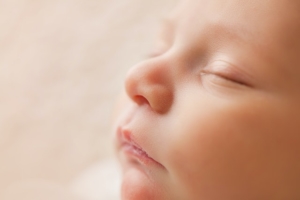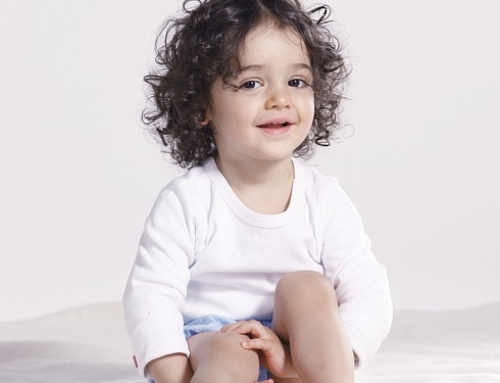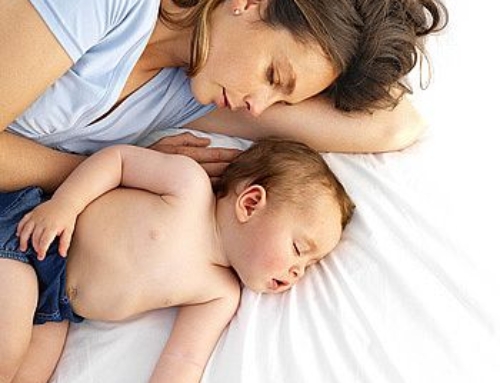
I have written at length about how sleep training does not actually improve sleep, especially when we look at objective measures of sleep, like actigraphy. But not everyone does and sometimes other interventions are utilized. A new article – still in pre-press, but a kindly friend shared the pre-proof with me – has taken the steps to do a full meta-analysis of all sleep training interventions that aim to increase children’s sleep. I think it’s worth us taking a good look at what they found.
The meta-analysis and review – from a broad range of researchers at the University of Otego in New Zealand – aimed to look at a variety of sleep interventions in terms of how well they increased the amount of sleep that children got. Crucially, they would only look at those that were randomized controlled trials (RCTs) as these tend to be the best quality depending on how the statistics are done, but it should be clear that they do best just to determine if any intervention helps, not the specific outcomes of a given intervention. They separated the studies based on whether they looked at nighttime sleep, daytime sleep, or 24-hour sleep in children aged 0 to 5 with no underlying issues. Both objective and subjective measures of sleep were included.
It should be noted that the researchers were looking to find positive interventions because they argued that children are not often getting enough sleep. I mention this because it actually speaks to the fact that these were not people out to find that sleep training or interventions didn’t work. Quite the opposite.
What did they do?
Their search found 32 RCTs that met their criteria. Twenty of the RCTs were specifically focused on trying to improve sleep and the remaining 12 were part of larger multi-component studies of which sleep was one part. Only 9 articles included actigraphy, the remainder used parent-reported sleep diaries or questionnaires. This matters because, as we know, it’s more likely that parents report an improvement even when none exists and as such, this would increase the potential to see improvements that would not match if only objective measures were included. This was mirrored by the risk of bias assessed for each article and of course was much higher for parent reported articles than those which included actigraphy.
Follow-ups (and thus the definition of success) ranged from 2 weeks to 1 year later, with most falling in between 3 weeks and 6 months. Most studies came from industrialized countries, with the majority being in North America. Most interventions had an educational component to them and the multi-component interventions often focused on elements like diet, screen time, and activity levels (as they often were focused on sleep and obesity). There was little discussion of what these trials included, though looking at many of the studies, we are generally speaking about sleep training including graduated extinction and self-soothing.
What did they find?
As they report, there was not a lot of support for interventions improving total sleep at any point. The overall effects for daytime were an average increase of 2.5 minutes, nighttime sleep was improved an average of 9 minutes, and 24-hours sleep increased an average of 8.6 minutes. Although the increase in 9 minutes would equal an extra hour a week, this is still dependent on studies with a high risk of bias due to the parental-report nature of the data. Indeed, when we look at the individual plots for the studies, those that included actigraphy often found no effect of intervention whereas the positive effects were often found with sleep diaries.
There were some moderating factors worth mentioning:
- Sleep-only interventions versus multi-component interventions. When the interventions were sleep-only, they had a greater effect on sleep outcomes with an increase of 10 minutes compared to multi-component interventions (14 min versus 4 min).
- Age of child. There was a greater effect for nighttime sleep when children were in the 6-12 month range (mean increase of 27 min), but there were only 3 trials with children of this age included. Under 6 months had an average increase of 9 minutes and 3-5 year olds had an average increase of 10 min. However, when looking at 24-hour sleep, the effect was greatest for preschoolers (19 min) with little effect on < 6 months (8 min) or 6-12 months (2 min). Why the age differences in night versus 24-hour measures is unclear.
- Type of trial. There are two types of RCTs – cluster and individual. This refers to how people are randomized. In the cluster randomization, it’s often a place that gets one intervention (like a hospital) and another place gets a different one. With individual randomization, the individual is randomly assigned to a given condition. In these findings, there was a greater increase in sleep with cluster randomization (mean of 13 min).
- No long-term effects. When data was available for longer-term analyses, there was no effect of any increase, with a mean decrease of 2.8 minutes (which is not statistically significant) at night and a mean increase of 0.7 minutes over a 24-hour period.
- Method of sleep measurement. When looked at over a 24-hour period, those studies utilizing sleep diaries had an mean increase of sleep duration 34 minutes compared to questionnaire or actigraphy, mirroring what I mentioned aboved.
Conclusions?
The findings here do not support interventions that aim to improve sleep. Although there are some avenues that might suggest assistance, the fact that the findings with more objective measures of sleep do not support these suggests that most interventions are not effective. As mentioned though, they only looked at increases in sleep time and not other sleep factors which would need to be the focus of another review and meta-analysis.
In the meantime, I think it goes to show how many of these interventions simply aren’t designed with infant biology in mind. As such, please don’t feel guilt if you decide you don’t want any part of them.
Reference
Fangupo, L., Haszard, J. J., Reynolds, A. N., Lucas, A. W., McIntosh, D. R., Richards, R., … & Taylor, R. W. (2021). Do sleep interventions change sleep duration in children aged 0-5 years? A systematic review and meta-analysis of randomised controlled trials. Sleep Medicine Reviews, 101498.






Leave A Comment